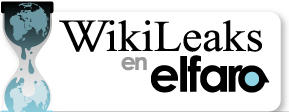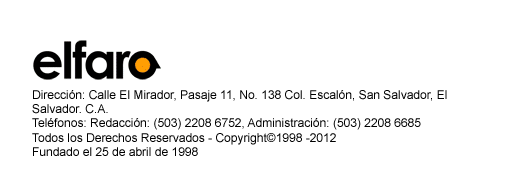TALKING TO GENERAL VASQUEZ AND PRESIDENT ZELAYA
Publicado el 31 de Mayo de 2011
id: 226877
date: 9/24/2009 19:28
refid: 09TEGUCIGALPA962
origin: Embassy Tegucigalpa
classification: CONFIDENTIAL
destination: 09STATE69222
header:
VZCZCXRO3789
OO RUEHAO RUEHCD RUEHGA RUEHGD RUEHHA RUEHHO RUEHMC RUEHMT RUEHNG
RUEHNL RUEHQU RUEHRD RUEHRG RUEHRS RUEHTM RUEHVC
DE RUEHTG #0962/01 2671928
ZNY CCCCC ZZH
O 241928Z SEP 09
FM AMEMBASSY TEGUCIGALPA
TO RUEHC/SECSTATE WASHDC IMMEDIATE 0738
INFO RUEHWH/WESTERN HEMISPHERIC AFFAIRS DIPL POSTS IMMEDIATE
RUEATRS/DEPT OF TREASURY WASHDC IMMEDIATE
RUEKJCS/SECDEF WASHDC IMMEDIATE
RUEAIIA/CIA WASHDC IMMEDIATE
RHEHAAA/NATIONAL SECURITY COUNCIL WASHINGTON DC IMMEDIATE
RUEKJCS/JOINT STAFF WASHDC IMMEDIATE
RUEHLMC/MILLENNIUM CHALLENGE CORP WASHINGTON DC IMMEDIATE 1208
RHEHAAA/THE WHITE HOUSE WASHDC IMMEDIATE
RHMFISS/CDR USSOUTHCOM MIAMI FL IMMEDIATE
RHMFISS/CDR USSOUTHCOM MIAMI FL//CINC/POLAD// IMMEDIATE
RUEAHND/CDRJTFB SOTO CANO HO IMMEDIATE
----------------- header ends ----------------
C O N F I D E N T I A L SECTION 01 OF 02 TEGUCIGALPA 000962
SIPDIS
STATE FOR WHA/CEN A/S TOM SHANNON
E.O. 12958: DECL: 09/24/2019
TAGS: PGOV, KDEM, PREL, TFH01, HO
SUBJECT: TFH01: TALKING TO GENERAL VASQUEZ AND PRESIDENT
ZELAYA
REF: STATE 69222
TEGUCIGALP 00000962 001.2 OF 002
Classified By: Ambassador Hugo Llorens, reasons 1.4 (b & d)
1. (C) Summary: We have been working with Chief of Defense
General Romeo Vasquez Velasquez to improve
conditions for President Zelaya's party and Brazilian
diplomats in the Brazilian chancery. Vasquez is willing to
help but has also insisted that Zelaya be more active in
encouraging his supporters to avoid violence. Zelaya has
told us that he met with Micheletti representative Arturo
Corrales and discussed the possibility of a negotiated
settlement. Zelaya said Corrales told him that under no/no
circumstances would Micheletti allow Zelaya back in power.
Corrales offered the "Third Option" whereby Micheletti and
Zelaya would both resign and a constitutional successor would
be named to run a government of national reconciliation
through the elections and the January 27, 2010 inauguration
of a newly-elected head of state. Zelaya said he was willing
to accept a modified version of San Jose, but that he would
not give up his claim to the presidency. End Summary.
2. (C) As per Department instructions, the Ambassador spoke
the evening of September 23 to regime Chief of Defense
General Romeo Vasquez Velasquez. The Ambassador conveyed the
U.S. position that the regime fully respect the diplomatic
inviolability of the Brazilian Embassy and wanted to ensure
that the security forces took effective steps to provide for
the security of President Zelaya and his family who were in
the diplomatic compound. The Ambassador passed on concerns
expressed by those within the compound, and propagated by the
rumor mill, that the regime security forces were planning to
enter the Brazilian Embassy and arrest Zelaya. Vasquez
assured the Ambassador once again that under no/no
circumstances would the Honduran military enter the Brazilian
Embassy and attempt to capture President Zelaya. He
described the rumors as "lies" and said they were part of a
Zelaya campaign to discredit the regime and the military.
Vasquez reiterated the military's cooperation with the
Embassy in improving conditions in the Brazilian compound in
terms of food, water, and the entry and exit of visitors.
The Ambassador noted that an issue of concern related to
continued restrictions on the movement of Brazilian
diplomatic personnel in and out of their chancery. He said
that Honduran security forces would allow the Charge free
movement, but insisted that if he left the chancery his
vehicle would need to be searched.
3. (C) On the morning of September 24, the Ambassador spoke
again to Vasquez to convey complaints from Brazilian
diplomats and the Zelaya party regarding conditions within
the chancery compound. The Ambassador noted that the
previous evening security forces had beamed bright lights
into the compound and mobilized a large contingent of troops
to the Embassy and positioned some of them in full battle
gear on the walls of the compound. The Ambassador stressed
that the U.S. and the international community insisted on
fair and humane conditions for those in the compound.
Vasquez agreed that it was in their interest to improve
conditions for the Zelaya party and Brazilian diplomats.
(Note: Later in the morning Vasquez assigned a senior
military officer to be available to President Zelaya, the
First Lady and the Brazilian Charge d'Affaires to deal with
any issues pertaining to conditions within the compound.
This direct telephone contact has been established. End
Note).
4. (C) Vasquez told the Ambassador that the military did not
want President Zelaya hurt. He said that the despite their
differences he considered Zelaya a personal friend. He added
that the armed forces were doing everything
possible to avoid violence. He noted that the Honduran
military was on the record as supporting San Jose and
wanted a negotiated solution. He warned that the breakout of
generalized violence and death would lead to chaos and
catastrophe for the Honduran people. Vasquez asked the
Ambassador to approach President Zelaya and urge him to
instruct his supporters to avoid the use of violence, and to
stop looting and damaging property. The Ambassador responded
TEGUCIGALP 00000962 002.2 OF 002
that the U.S. has pressed Zelaya to do everything in his
power to avoid violence and to call for reconciliation.
However, the Ambassador agreed to pass on his message
directly to Zelaya.
5. (C) Following this conversation the Ambassador spoke to
President Zelaya and urged him to do everything to
discourage his supporters from committing acts of violence
and vandalism. The Ambassador stressed that the breakdown in
law and order, the eruption of civil conflict and any
shedding of blood would be a tragedy for the Honduran nation
and would be devastating to the political fortunes of himself
and Roberto Micheletti. Zelaya agreed and said he would go
back to his supporters in the resistance movement and direct
them to peaceful activity.
6. (C) Zelaya also told the Ambassador that he had met with
Micheletti Commission member Arturo Corrales late last night.
He said that Corrales said the regime was willing to
negotiate a deal. Corrales said that under no/no
circumstances would the Micheletti regime allow him to return
as President. He Corrales said that the regime offered the
Third Option, whereby Micheletti and Zelaya would both resign
and a constitutional succession would occur (possibly with
the President of the Supreme Court or the Minister of
Governance assuming the Presidency). He said the new
government of national reconciliation would preside over the
elections and transfer power to the newly-elected president.
Zelaya said he responded that he was open to negotiate and he
was very open to an expanded version of San Jose with
stronger enforcement mechanisms, but would not countenance
renouncing the presidency. Zelaya said he looked forward to
the meeting with the presidential candidates and expressed
the hope that they could help bridge the gap between the two
sides.
LLORENS
=======================CABLE ENDS============================




